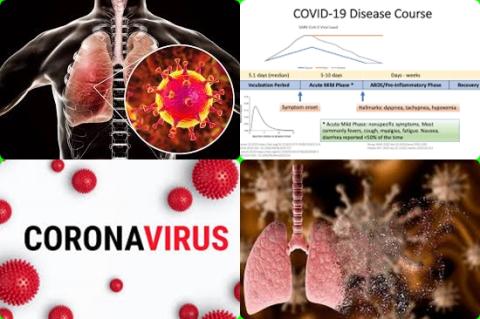
Objectives:
What are the specific symptoms and comorbidities predicting severe COVID-19 and intensive care unit (ICU) admission?
Study design:
This review article included 7 retrospective cohort studies, conducted between December 2019 and February 2020, with a total of 1,813 COVID-19 patients.
The median age was 62.4 years for ICU-admitted patients compared to 46 years for non-ICU patients and 49.4 years for severe compared to 41.7 years for non-severe disease patients.
Results and conclusions:
The investigators found the most prevalent symptoms in the severe group were cough (70.5%), fever (64.1%) and fatigue (44.5%).
In the ICU group these were cough (67.2%), fever (62.9%) and dyspnoea (61.2%).
The investigators found the most prevalent comorbidities in the severe group were hypertension (25.4%) and diabetes (16.8%) and in the ICU group were hypertension (40.5%) and cardiovascular disease (CVD) (24.1%).
The investigators found men were 1.55 times more likely than women to be admitted to ICU [95% CI = 1.02-2.36] but not at a significantly increased risk of being in the severe group.
The investigators found dyspnoea was the only symptom significantly associated with both severe disease [pOR = 3.70, 95% CI = 1.83 to 7.46] and ICU admission [pOR = 6.55, 95% CI = 4.28 to 10.0], being more strongly associated with the latter.
The investigators found cough was associated with severe disease [pOR = 1.63, 95% CI = 1.03 to 2.60], but not ICU admission.
The remaining symptoms analysed were not associated with either outcome.
The investigators found chronic obstructive pulmonary disease (COPD), CVD and hypertension were the comorbidities significantly predictive for both severe disease and ICU admission.
The pORs for severe disease were as follows: COPD [6.42, 95% CI = 2.44 to 16.9], CVD [2.70, 95% CI = 1.52 to 4.80] and hypertension [1.97, 95% CI = 1.40 to 2.77].
The investigators found COPD, CVD and hypertension were more strongly associated with ICU admission, compared with severe disease, with pORs of 17.8 [95% CI = 6.56 to 48.2], 4.44 [95% CI = 2.64 to 7.47] and 3.65 [95% CI = 2.22 to 5.99], respectively.
The investigators found, in contrast, diabetes was of borderline significance in predicting severe disease [pOR = 3.12, 95% CI = 1.0 to 9.75], but not ICU admission [pOR = 2.72, 95% CI = 0.70 to 10.6], although the Tau-squared (I2) value for the latter was unusually high implying a high level of heterogeneity.
The investigators concluded dyspnoea is the only symptom predictive for severe COVID-19 and intensive care unit (ICU) admission. Patients with obstructive pulmonary disease (COPD), cardiovascular disease (CVD) and hypertension are at higher risk of severe illness and ICU admission.
Original title:
Predictive symptoms and comorbidities for severe COVID-19 and intensive care unit admission: a systematic review and meta-analysis by Jain V and Yuan JM.
Link:
https://www.ncbi.nlm.nih.gov/pmc/articles/PMC7246302/
Additional information of El Mondo:
Find more information/studies on coronavirus right here.